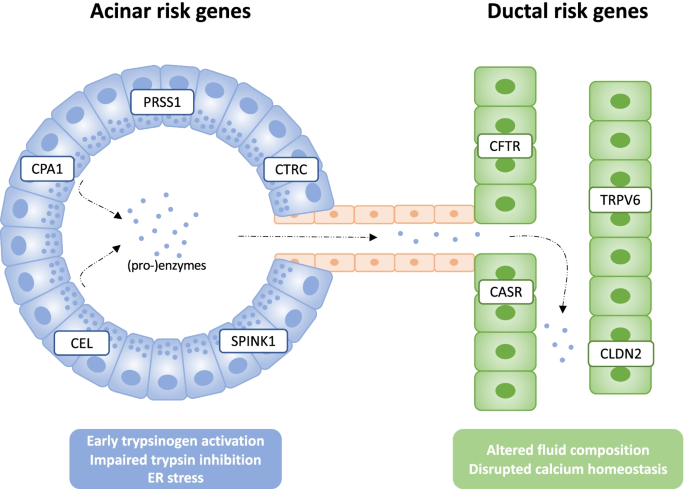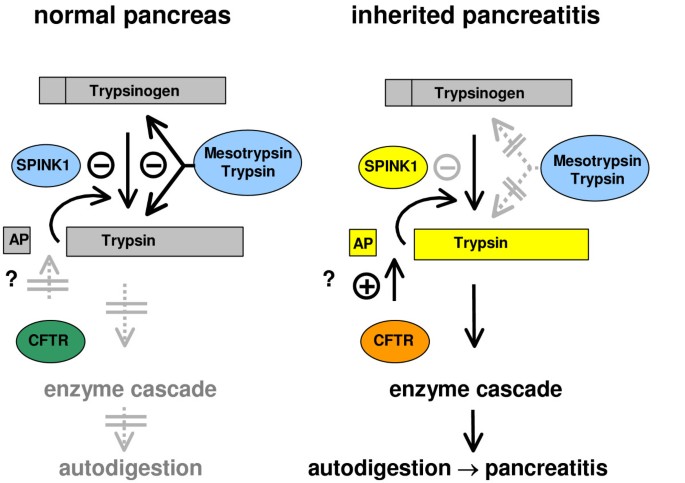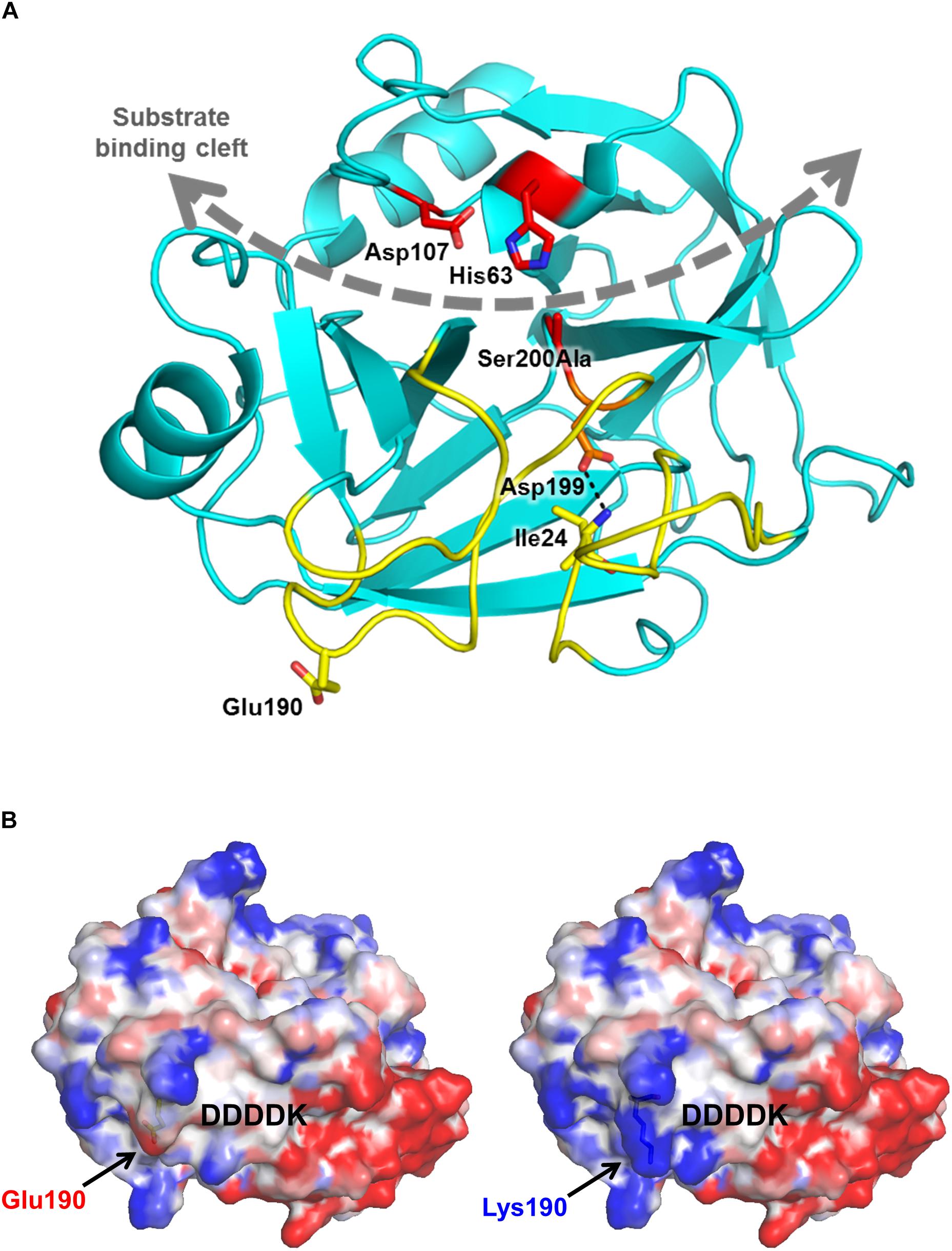
Figure 1 from Human cationic trypsinogen (PRSS1) variants and chronic pancreatitis. | Semantic Scholar
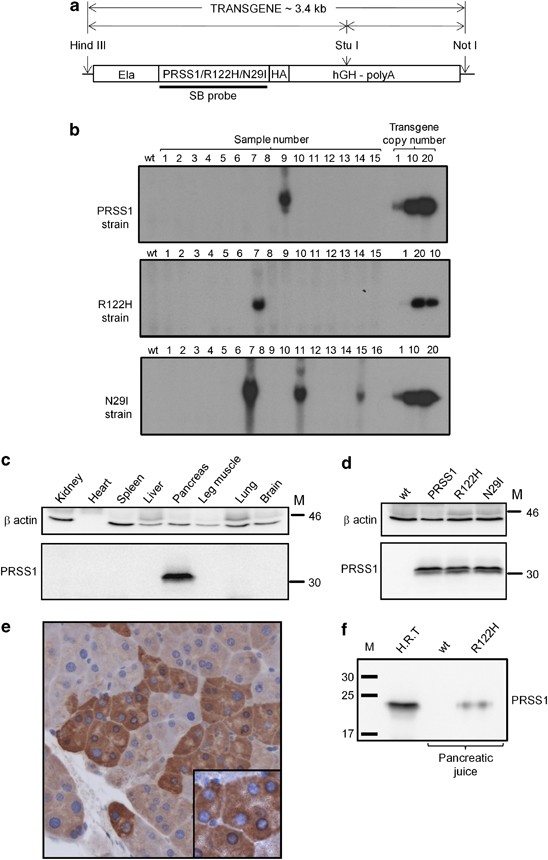
Expression of human cationic trypsinogen (PRSS1) in murine acinar cells promotes pancreatitis and apoptotic cell death | Cell Death & Disease
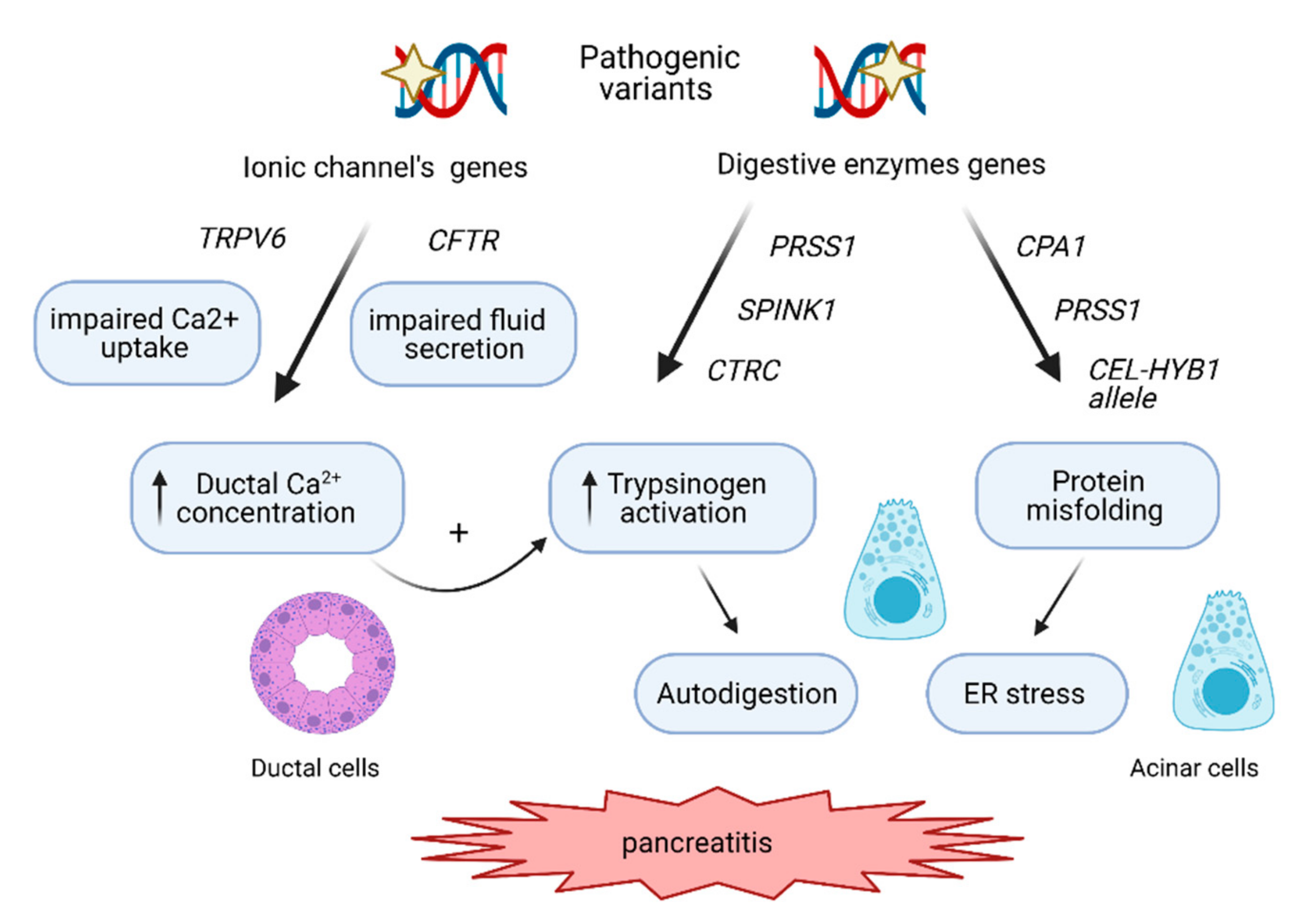
Genes | Free Full-Text | Genetic Risk Factors in Early-Onset Nonalcoholic Chronic Pancreatitis: An Update
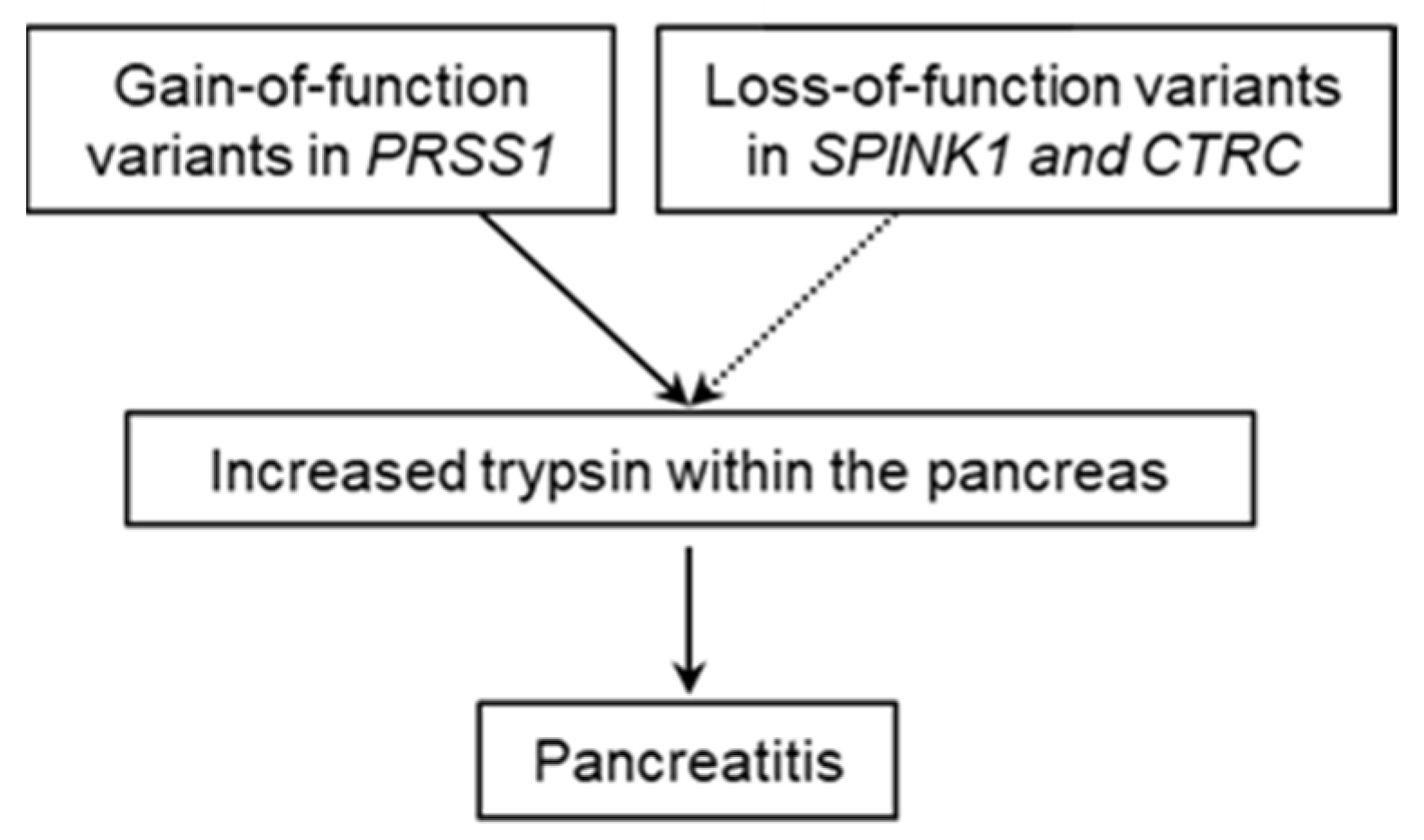
Genes | Free Full-Text | Chronic Pancreatitis: The True Pathogenic Culprit within the SPINK1 N34S-Containing Haplotype Is No Longer at Large
View of Chronic Pancreatitis Associated with the p.G208A Variant of PRSS1 Gene in a European Patient | JOP. Journal of the Pancreas

A preclinical model of chronic pancreatitis driven by trypsinogen autoactivation | Nature Communications

Tighter Control by Chymotrypsin C (CTRC) Explains Lack of Association between Human Anionic Trypsinogen and Hereditary Pancreatitis - ScienceDirect

PDF) Mutations in the pancreatic secretory trypsin inhibitor gene (PSTI/SPINK1) rather than the cationic trypsinogen gene (PRSS1) are significantly associated with tropical calcific pancreatitis | idris muhammad - Academia.edu

Human cationic trypsinogen was conditionally expressed in transgenic... | Download Scientific Diagram
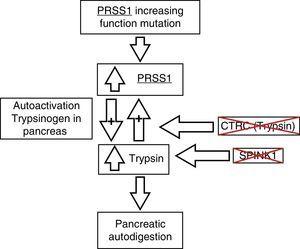
SPINK1 mutation in a pediatric patient with chronic pancreatitis: A case report | Revista de Gastroenterología de México

Functional effects of 13 rare PRSS1 variants presumed to cause chronic pancreatitis. - Abstract - Europe PMC

Gene Conversion Between Cationic Trypsinogen (PRSS1) and the Pseudogene Trypsinogen 6 (PRSS3P2) in Patients with Chronic Pancreatitis - Rygiel - 2015 - Human Mutation - Wiley Online Library

Pathogenesis of autoimmune and hereditary pancreatitis with a focus on neutrophil granulocytes and neutrophil serine proteases
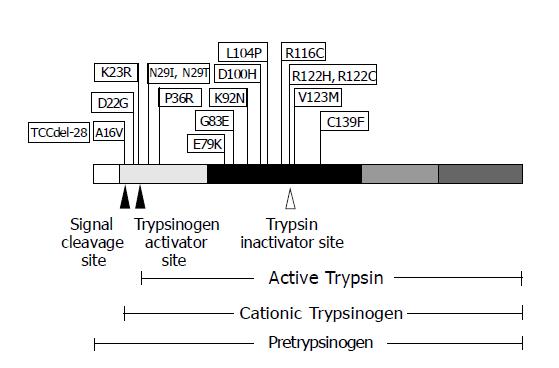
A Thai family with hereditary pancreatitis and increased cancer risk due to a mutation in PRSS1 gene
![PDF] Mutations in the cationic trypsinogen gene are associated with recurrent acute and chronic pancreatitis by Michael C. Gorry, D Gabbaizedeh, William Furey, Gates Lk, Preston Ra, Christopher E. Aston, Yingze Zhang, PDF] Mutations in the cationic trypsinogen gene are associated with recurrent acute and chronic pancreatitis by Michael C. Gorry, D Gabbaizedeh, William Furey, Gates Lk, Preston Ra, Christopher E. Aston, Yingze Zhang,](https://og.oa.mg/Mutations%20in%20the%20cationic%20trypsinogen%20gene%20are%20associated%20with%20recurrent%20acute%20and%20chronic%20pancreatitis.png?author=%20Michael%20C.%20Gorry,%20D%20Gabbaizedeh,%20William%20Furey,%20Gates%20Lk,%20Preston%20Ra,%20Christopher%20E.%20Aston,%20Yingze%20Zhang,%20C%20Ulrich,%20Garth%20D.%20Ehrlich,%20David%20C.%20Whitcomb)
PDF] Mutations in the cationic trypsinogen gene are associated with recurrent acute and chronic pancreatitis by Michael C. Gorry, D Gabbaizedeh, William Furey, Gates Lk, Preston Ra, Christopher E. Aston, Yingze Zhang,

Mutation That Promotes Activation of Trypsinogen Increases Severity of Secretagogue-Induced Pancreatitis in Mice - Gastroenterology


